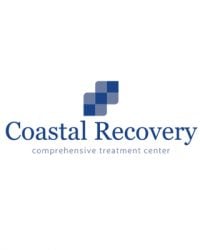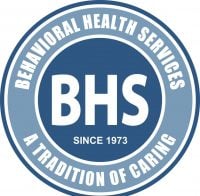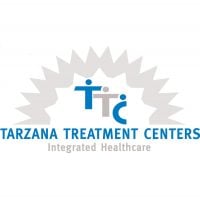House of Hope
Drug Rehab Center in Los Angeles, California
House of Hope is an accredited Los Angeles facility offering individualized treatment programs for alcoholism and opioid addiction with various levels of care and therapies, including long-term options and in-network coverage by major health insurance carriers.
About House of Hope in California
House of Hope is a premier addiction treatment center located in Los Angeles, California that offers a variety of treatment services for individuals struggling with alcohol abuse and opioid addiction. The facility is accredited by CARF, SAMHSA, and the State License; providing the highest quality of care for addicts of all ages. House of Hope offers inpatient, aftercare support, outpatient, and sober-living/halfway housing programs to help clients embrace a successful and meaningful recovery.
Clients can receive treatment through various methods and therapies including yoga therapy, cognitive behavioral treatment (CBT), family therapy, group therapy, trauma therapy, couples therapy, individual therapy, life skills, motivational interviewing, experiential therapy, and nicotine replacement therapy (NRT). At House of Hope, clients can benefit from 86 beds and the ability to have private health insurance accepted. Treatment counselors, clinicians, and medical staff are available 24/7 to help clients work towards sobriety. This shelter is committed to providing personalized and compassionate care to safely guide clients through their journey towards recovery.
Genders
Ages
Modality
Additional
Accreditations
State License
SAMHSA

CARF
The Commission on Accreditation of Rehabilitation Facilities (CARF) is a non-profit organization that specifically accredits rehab organizations. Founded in 1966, CARF's, mission is to help service providers like rehab facilities maintain high standards of care.
Conditions and Issues Treated
Treatment for opioid addiction is best made with the help of medical professionals who are experienced in dealing with these types of drugs. This treatment can involve medications, exercise, behavioral therapy, and counseling sessions. It is important to note that the effectiveness of treatments for opioid addiction vary, so it is vital to research which treatment options are suitable for each individual.
Many people who struggle with opioid addiction need to attend specific programs like methadone , Suboxone or Vivitrol clinics.
These types of programs will provide the patient with legal, prescription medications that can help them overcome their cravings for illegal opioids like heroin or fentanyl . If the patient has a chronic condition like Hepatitis C, they must undergo treatment before they can begin taking these medications.
Levels of Care Offered
This center offers a variety of custom treatment tailored to individual recovery. Currently available are Aftercare Support, Inpatient, Outpatient, Sober-Living / Half-Way, with additional therapies available as listed below.
Inpatient recovery offers individual therapy, groups, and family therapy. The length of inpatient addiction treatment depends on the addict and their addiction. Inpatient rehab is a costly drug treatment, costing anywhere from $30k- to $60k. However, insurance often offers help in covering these costs.
Outpatient treatment can be considered the lowest intensity level of addiction treatment in Los Angeles, CA. It is ideal for early phase addiction or lower intensity addictions. House of Hope peer group support, 12-step programs, and individual counseling are likely to be involved.
Sober living homes are transitional houses for recovering addicts who need more structure than they would receive in an aftercare program. Specific rules and regulations are enforced in these homes, which are beneficial for people who need a greater degree of structure than other types of treatment.
Sober living home options include:
- Live-in managers – might be beneficial to people who do not have a support system in place at home, or who experience high levels of stress between work and home life.
- House managers – House managers are beneficial for people who do not have a strong social network to rely on, or who are concerned about relapse in their daily lives.
- House parents – House parents are beneficial to people who reside in areas without a strong aftercare program for support.
Aftercare support is vital to those who have completed a drug or alcohol treatment program. This support comes in individual and family counseling, treatment of psychiatric and other medical conditions, and medications to reduce cravings. It helps recovering addicts adjust to normal day-to-day activities and can last for a year or longer.
The majority of drug and alcohol addicts who receive aftercare treatment do not relapse. It is estimated that without aftercare, the relapse rate will be between 70 to 90 percent for most people. Aftercare is the final stage in addiction recovery, but it will also help maintain sobriety if relapse does occur.
Therapies & Programs
Individual therapy is ideal for addicts who want to focus on themselves. It can also be helpful for those whose withdrawal symptoms are exacerbated by the presence of other people.
Benefits of individual therapy are:
- Access to a personalized treatment plan that focuses on the individual needs of the addict
- More privacy during treatment sessions
- Better personal development through introspection
- Increased self-awareness regarding addictive tendencies in order to avoid relapse
- Greater potential for a long-term recovery plan
- Receiving professional advice and detox assistance from medical staff
Couples therapy is a treatment method used to help couples in which at least one member of the couple has a drug addiction. Couples therapy can be used whether the addicted partner is using drugs or in recovery. An additional benefit of couples therapy is that it can help make other types of treatment, such as 12-step programs, more effective.
Family therapy can help you and your family deal with old issues that may trigger substance abuse. The idea behind family therapy for drug addiction is that you are never fully healed from substance abuse until you’ve healed your relationship with your family, too. To get sober, you need to find a different way to cope with the pain in your life.
This is when a group of people in various stages of recovery meet up and discuss their experiences, triggers, successes, failures, and even alternative therapies! Unlike support groups where everyone already knows each other, group therapy is conducted along side outpatient or inpatient treatment at House of Hope.
Trauma therapy is a clinical process that helps individuals deal with mental stress often caused by traumatic events. The therapist helps the person identify, understand and work through the problem. This is done with the help of talking about it in group or one-on-one counseling sessions.
Therapists use relaxation, role-playing, art, and music to help the person open up about what is bothering them. Some examples include:
- Talking about the traumatic event and how it affected them.
- Helping those who have PTSD to deal with their nightmares and recurring memories.
- Working with individuals to resolve the issues triggering the stress, whether seeing someone who reminds them of what happened or feeling helpless.
The individual is also encouraged to help others that are struggling with similar problems. This often helps them feel empowered and gives them hope.
Trauma therapy is not for everyone; it is usually reserved for people who have recently experienced a traumatic event and struggle to get over it. It is generally done for children, teenage victims of sexual assault, and war veterans.
CBT is a psychotherapy approach and method. [ws-nap-name] people to examine how their thoughts, including habitual harmful and inaccurate thinking, affect their actions. CBT is based on the idea that rigid, inflexible thinking leads to poor stress management, which leads to emotional distress.
Similarly, CBT helps people identify and change negative behaviors. It makes you question your perceptions and ask if they are realistic. CBT asks people to examine their behaviors and emotional responses and how they affect their lives. CBT aims to change people’s thinking and behavior to lead a more balanced and healthy life.
Moreover, CBT has been shown to reduce anxiety disorders, depression, and symptoms associated with harmful thoughts or actions.
Those struggling with addiction can benefit from learning certain life skills. It is not as simple as quitting drinking or taking drugs and thinking that the hard part is over. Being sober means living a whole new way of life. Many recovering addicts have found that they need to develop talents like time management, organization, communication skills, socialization skills, and self-esteem to make their life in sobriety work, House of Hope is here to help with that.
Patient Experience
Experiential Therapy at House of Hope
Experiential Therapy is a type of therapy that involves activity to recreate situations that may have caused trauma or negative emotions. Experiential therapy at House of Hope in Los Angeles, CA can involve acting, props, arts and crafts, animal care or other tools that may be effective. This therapy is done on an individual basis and can help revisit and heal from past traumas. Trust between the therapist and individual is important for success. Experiential therapy can help you more closely become you and move through life positively and authentically.
Payment Options Accepted
For specific insurance or payment methods please contact us.
Is your insurance accepted?
Ask an expert, call (888) 674-0062
Additional Details
Specifics, location, and helpful extra information.
Los Angeles, California 90731 Phone Number(310) 831-9411 Meta DetailsUpdated November 25, 2023
Staff Verified
House of Hope Patient Reviews
There are no reviews yet. Be the first one to write one.
Los Angeles, California Addiction Information
More than 3 million of California's citizens are addicted to illegal drugs. Almost 800,000 people use hard drugs, almost 5 million use marijuana, and another 2.1 million abuse alcohol every year. Other substance abuse issues such as binge drinking and teen drug use are also common. Many illegal drugs such as cocaine, heroin, methamphetamine, and marijuana are smuggled into the state from Mexico.
10% of adults in Los Angeles have used illicit drugs or abused prescription drugs within the past year. Heroin, marijuana, prescription pain relievers and cocaine are widely abused in Los Angeles. Over 130,000 people in the city struggle with addiction to drugs or alcohol. Many residential rehab facilities in the area can provide long-term care. The best way to find the right treatment option is to speak with a professional.
Treatment in Nearby Cities
- Lancaster, CA (66.2 mi.)
- Thousand Oaks, CA (43.8 mi.)
- Encinitas, CA (74.9 mi.)
- West Covina, CA (30.3 mi.)
- Pleasanton, CA (338.2 mi.)
Centers near House of Hope
The facility name, logo and brand are the property and registered trademarks of House of Hope, and are being used for identification and informational purposes only. Use of these names, logos and brands shall not imply endorsement. RehabNow.org is not affiliated with or sponsored by House of Hope.







